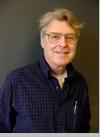Pomper to Retire in 2010 after Nearly a Half Century at Wesleyan

Professor of History Philip Pomper is making history of his own as he plans to retire from Wesleyan after 46 years in May 2010.
Pomper came to Wesleyan after graduating from the University of Chicago with a doctoral degree. He had enjoyed the seminar style classes at Chicago and looked forward to teaching seminars at Wesleyan.
“I always dreamed of joining the faculty of a small liberal arts institution,” Pomper says.
Not only did Pomper have an idea for the type of institution he was drawn to, he was compelled to be a professor even in high school.
“After the usual fantasies about an athletic career I think I always wanted to be a college professor,” Pomper says. “My high school buddies used to call me ‘Professor.’ In my teens I encountered Enlightenment ideals and believed that if anything could save us from self-destruction it would have to take the form of the deep self-examination of our species and a progressive historical process. Growing up during World War II and the Holocaust probably made me precociously serious about such things.”
Pomper originally wanted to study French revolutionary history, but his interest in Russia was sparked in the summer of 1957 as he and some friends explored another continent.
“Two friends and I hitchhiked, bicycled, and motored through Europe,” he recalls. “In August we were sleeping in cow pastures in the English Lake District near Keswick and Penrith. There was a caravan parked nearby. A Cambridge geologist, the late Steward Agrell, and two of his sons were collecting specimens for his examination. He asked us if we’d like to join them and we did.”
The geologist and his family were staying with a Russian mathematician and his wife, and Pomper and his friends enjoyed conversing with them and learning about the new regime in the Soviet Union.
“He was convinced that the Soviet Union would become the vanguard of progress in all area of learning,” Pomper says. “His message was, learn Russian young men!”
Two months after that summer trip, Sputnik went up and Pomper was struck by the Russian’s predictions. Russian studies students started to get a significant amount of support at that time because of National Defense Education Act funds. Pomper had the good fortune to study under Russian historian Leopold Haimson, who he describes as “charismatic.”
He also experienced the fortune of being in the second group of exchange students from the United States to Russia in 1962 after Khrushchev created the cultural exchange. This gave the budding Russian scholar a chance to delve into Soviet archives while in the U.S.S.R.
Pomper had taken a course with Wesleyan’s Russian historian, Michael Cherniavsky, at Chicago a few years before his arrival in Middletown and interestingly enough ended up being his replacement at Wesleyan. Not only was it a good time for scholars in Russian Studies, Wesleyan was a fortuitous place to be when Pomper arrived in the autumn of 1964. It was the vibrant place he had been looking for.
“The administration encouraged us to be teacher-scholars of the first rank by supporting us generously with sabbaticals and leaves,” he says. “With that kind of support I ended up doing more research and writing than I had anticipated when I chose a small college.”
At the time, then-President Victor Butterfield encouraged interdisciplinary work, something Pomper valued because, “it brought you into different intellectual environments and multiplied your contacts and friendships.”
Pomper also has maintained a long history of involvement with the journal History and Theory, and was made associate editor in 1991. The journal allowed him to “discuss new trends with some very good thinkers working at the cutting edge of theory.”
Pomper has also been a prolific writer on his own. He has written six books and has published one translation along with coediting three books with Wesleyan colleagues. Pomper has authored many papers on subjects such as the Russian Revolution, the psychology of leadership, psychohistory, terrorism, cultural evolution, and key figures in history, including Lenin, Trotsky and Stalin.
Along with researching and writing, Pomper has always enjoyed teaching and says that the goal of his teaching was always the same: “to inspire love of learning and the life of the mind, a strenuous search for truth, but above all, critical thinking about received ‘wisdom.'”
“That may sound contradictory, but I don’t think that we can do without an idea of truth, even if we know that we are generating hypotheses and interpretations,” he says. “The idea is to inspire the quest, not insist upon an answer or promise an assured outcome. It’s a utopian project. The subject is not that important. It’s just a pathway into the problems. In the end you never can be sure what most students get out of it because they are so different. You are just one of many people whom they encounter and the things you offer affect them differently and sometimes not at all.”
Pomper says it’s challenging to picture a life without teaching in the near future and he will miss having such wonderful students. He will busy during his upcoming sabbatical next semester, however, and in his retirement that will follow.
In January, his new book Lenin’s Brother: The Origins of the October Revolution (W. W. Norton & Company) will be released, and Pomper will be conducting interviews and blogging to inform others about this exciting look into a historical, albeit tragic figure.
He will also be writing a book chapter based on his talk “Global Convergent Evolution: Malign or Benign” and exploring cultural evolution, as he has wanted to for quite some time. And of course, Pomper will continue to research and study what he knows best – Russia. He says he has many more books yet to write.
“In many ways Wesleyan was perfect for me. I feel very lucky,” Pomper says.

